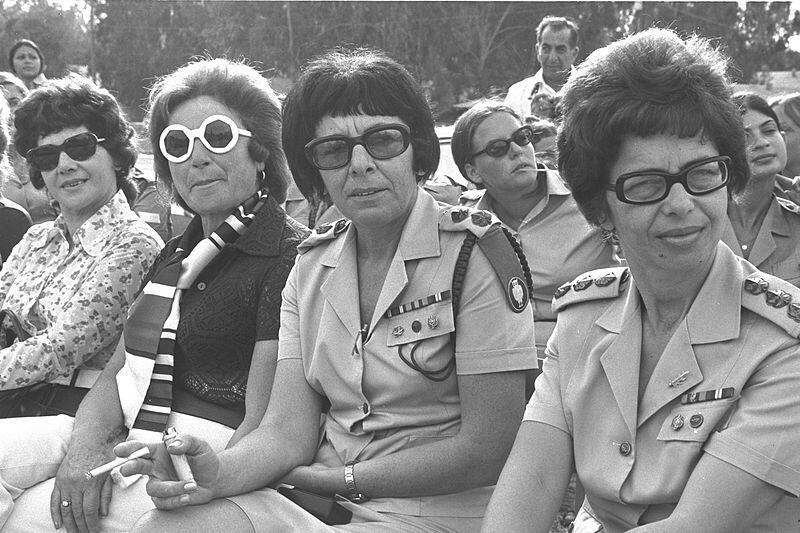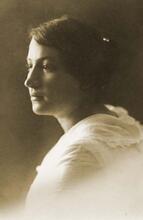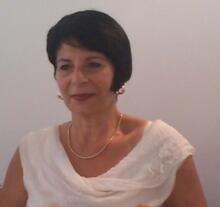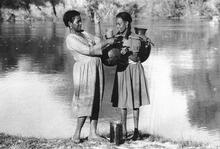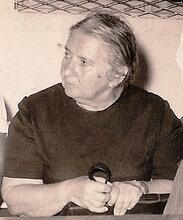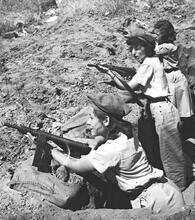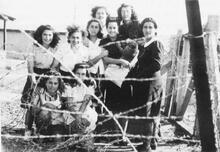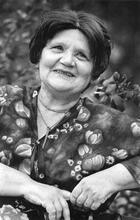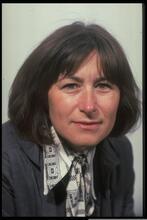Dvora Tomer
Born in Warsaw, Poland, in 1932, Dvora Tomer moved to Israel with her family in 1933, when she was a year old. She served in the Haganah during Israel’s War of Independence, and after the state’s establishment in 1948 she became a member of the then newly formed Israel Defense Forces. In the Israel Defense Forces, Tomer ultimately achieved the rank of colonel and worked primarily on the IDF’s financial matters and as a member of the IDF’s Women’s Corps. During her military career, she challenged the existing hierarchy of the IDF to allow for women to perform a wider range of roles that they had previously been excluded from.
Early Life and Education
Dvora Tomer, who was appointed commanding officer of the Women’s Corps (see: Chen) in 1970, was born in Warsaw on January 18, 1932, to Warsaw-born parents. Her father, Yisrael Nir (Nirenberg, 1907–1999), had received a classical Jewish education and was by profession a contractor and housepainter. Her homemaker mother, Hanna (née Yarblum, 1904–1993), was also Jewishly educated. The couple immigrated to Palestine in 1933, when Dvora, their second child, was one year old. Their older daughter, Tova (Lev), was born in 1930 and their son, Haim, in 1940.
Dvora attended the Neve Zedek primary school in Tel Aviv (1937–1945) and the Herzlia Gymnasia from 1945 to 1947. She completed her schooling at the Ironi Aleph Municipal High School (1947–1949) before studying at the Tel Aviv College for Law and Economics (1949–1953), where she received her B.A. in economics and took in-service courses in internal auditing towards an M.A. degree in business administration.
Military Career
A member of the Haganah from 1946 to 1948, Tomer enlisted in the IDF in August 1950. She continued to serve until March 1975, when she retired with the rank of colonel, which she had attained in 1970. Tomer had a rich and varied military career. After completing officers’ training and training for adjutants, she was engaged in various positions in the areas of administration, training and education. In 1955 she was transferred to the office of the Chief of Staff’s adviser on financial matters, where she advanced to the position of deputy head, while also serving as deputy head of the Budget Division of the Ministry of Defense.
Tomer was the first woman outside the Women’s Corps to obtain the rank of colonel, thus paving the way for other women. In June 1970 she was appointed OC Women’s Corps, serving in that position during the War of Attrition. The number of women inducted grew considerably, since troops were deployed in Sinai just at a time when there was a reduction in the number of men eligible for the draft. During her term of office, which ended in June 1973, a number of “traditional” occupations hitherto filled only by men were opened to women, especially in technical and technological functions. These included driving and other occupations that required pre-conscription training. At the same time, a campaign began to induct women on the basis of their aptitudes, rather than only on that of gender. In addition, stress was laid on servicewomen’s welfare; they were permitted to wear short skirts and trousers and received a greater supply of clothing and equipment appropriate for women. Allocation of lower-priced equipment, always available for men, was extended to include women.
During the Yom Kippur War of 1973–1974, Tomer established and headed a center that served as a liaison between the IDF and the families of servicemen missing in action—a stage in her service which she describes as especially traumatic.
Life After Military Career
Upon leaving the IDF Tomer joined Bank Hapoalim, where she worked until her retirement in 1997. The positions she occupied during her many years at the bank include those of board member; director of Hapoalim’s mortgage bank, Mishkan; personnel manager; chief comptroller and long-term planner. She eventually rose to the position of senior deputy managing director. She has served on the boards of numerous economic corporations and government companies, among them the Massad Bank, the Ozar ha-Hayal Bank and the America-Israel Bank.
Tomer’s many activities include membership on the board of governors of Ben-Gurion University of the Negev (where she serves as vice chairperson of the executive committee) and on the board of ORT Israel (where she served as vice chair of the board of directors). She was president of Women’s Israel ORT and on the executive committee of World ORT. For some ten years she was a board member of the Israel Center for Management, and she was for many years also a board member of the Council for Peace and Security. From 1976 to 1977 she served on the Prime Minister’s Commission on the Status of Women. Other activities in the sphere of women’s status include membership in the Forum of Senior Women Managers of the Israel Center for Management, in the government committee for increasing women’s role in the civil service and in the National Council for the Advancement of Women in Science and Technology. In 2017 Tomer received the President’s Award from the Ben-Gurion University of the Negev, where she also serves as Vice-Chairperson of the Executive Committee.
Married to Eli Tomer (Amster, b. 1931), an engineer and land appraiser, since 1954, Tomer is the mother of a daughter, Orit Matityahu (b. 1958), and a son, Ohad (b. 1962).
Chipman, Eilana, ed. “President’s Report, 2018.” Ben-Gurion University of the Negev. 2018. Beer Sheva, Israel. https://in.bgu.ac.il/President%20Report/PR_2018.pdf. Accessed July 18, 2020.
Zahavi, Eliyahu. “Women’s Army and the Pill.” The Detriot Jewish News. September 8, 1972. https://digital.bentley.umich.edu/djnews/djn.1972.09.08.001/42. Accessed July 18, 2020. University of Michigan: The Detriot Jewish News Digital Archives.

